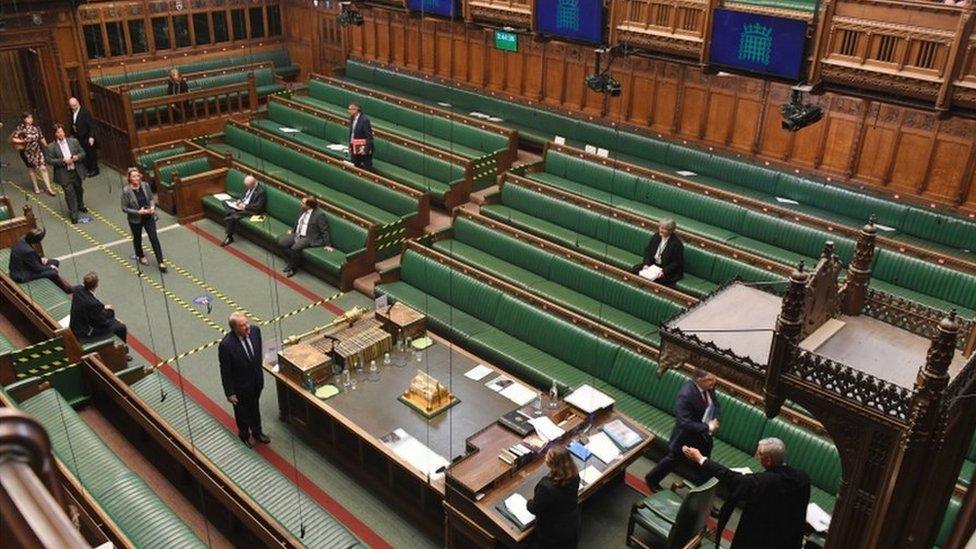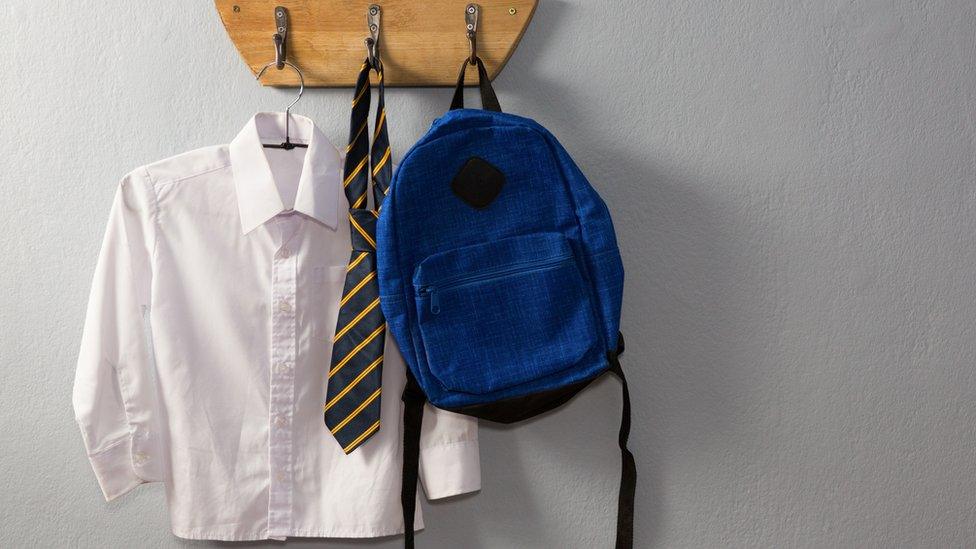Private Members Bills: MPs lose chance to pitch their laws
- Published

The Covid pandemic has forced a dramatic scaling-back of debates not central to the law-making and scrutiny work of the Commons.
Friday sittings, when MPs debate private members' bills, have been shelved, along with debates in Westminster Hall, the second chamber.
The idea was proposed "reluctantly" and without a set date to resume them by Commons leader Jacob Rees-Mogg, and has cross-party support.
The aim is to protect MPs and staff from infection, by reducing the physical presence in the parliamentary estate, in line with the new Covid guidelines.
But the move will have ramifications.
Barring a more rapid return than most expect, the decision could pretty much kill this year's crop of private members' bills, because unless sitting Fridays resume after the (expected) mid-February half-term break, which looks optimistic, there would be little chance of getting many of them through both Commons and Lords before the parliamentary year runs out.
Unlike real years, parliamentary sessions are not fixed in duration, but this one started in December 2019, so it's already quite an extended one, and most denizens of Westminster expect a new session to come in May, or possibly June.
Without some exotic manoeuvres to help them out, bills like Mike Amesbury's measure to prevent schools insisting on expensive uniforms, or Paula Barker's attempt to toughen up minimum wage enforcement, or Philip Dunne's new protection against dumping sewage in rivers, will all struggle to make their way through the legislative sausage machine.

One of this years "PMB" is on cutting the cost of school uniforms
Meanwhile, the temporary demise of Westminster Hall means no more Petitions Committee debates, the Monday evening debates that are the most watched parliamentary proceedings after PMQs.
It also means fewer opportunities for backbench debates - so there's a considerable narrowing of the range of subjects MPs can consider.
Conservative MP Sir Christopher Chope calculated the decision cuts 21 hours a week off the scrutiny given to the government.
Virtual debate proposal
Some MPs wanted Westminster Hall to continue to sit, but virtually.
Mr Rees-Mogg ruled that out on the grounds that it would strain the resources of the parliamentary Broadcasting Unit, and that the closure would, he hoped, not last "enormously long."
The Speaker did, however, say that plans to broadcast Westminster Hall debates, probably from a different room than the current one, would be worked up in the next few months.
This may not be the last change forced by the pandemic - some MPs are calling for full online voting to be resumed in the Commons and for bill committees to operate virtually.
And they point, enviously, to the much greater use of online voting and debating in the Lords.
